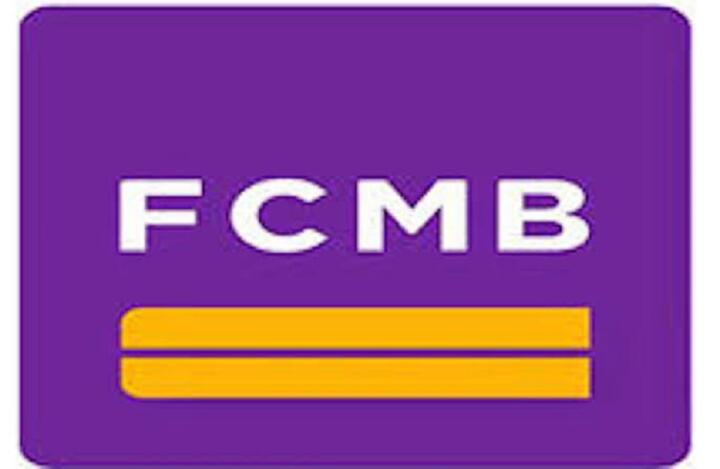FCMB Group, one of Nigeria’s leading financial conglomerates, has announced gross earnings totaling ₦529.2 billion in its recent financial results, underlining strong performance across its banking, wealth management, and investment operations. This marks a significant growth trajectory for the Group amid challenging macroeconomic conditions.
The reported figure represents an impressive year-on-year increase, driven by higher interest and non‑interest income streams. Core banking operations saw growth in net interest revenue, reflecting expanded lending activities and improved asset quality. At the same time, fee-based services—such as transaction processing, advisory services, and digital banking charges—contributed significantly to the earnings outcome.

The Group’s Chief Executive Officer attributed the robust performance to targeted strategies across subsidiaries. In corporate banking, FCMB boosted market share by onboarding new corporate clients and increasing exposure to sectors such as agriculture, fintech, and consumer goods. Its retail banking arm expanded digital account openings and cross-selling of products like mortgages, personal loans, and payment cards, helping enlarge the revenue base.
FCMB Investments and CSL Capital, subsidiaries focused on capital market operations and asset management, also delivered noteworthy contributions. Increased underwriting mandates, advisory roles in public offerings, and wealth management mandates generated substantial fees. These non‑interest levers helped diversify revenue and reduce reliance on traditional lending income.
The Group’s cost-to-income ratio improved slightly, signalling operational efficiency. Despite inflationary and currency pressures, expenses were managed through digitalisation, branch rationalisation, and automation of back‑office functions. This led to savings in personnel, energy, and administrative costs, contributing to bottom-line resilience.
Commenting on the results, FCMB executives noted that credit quality remained healthy, with non-performing loan ratios within targeted thresholds. Provisions against credit risk were stable, reflecting careful credit underwriting and the group’s commitment to conservative lending practices.
Analysts welcomed the results, observing that the earnings reflect both resilience and strategic execution. “In a time of high inflation and tight monetary policy, generating strong gross earnings suggests DFMC’s business model remains competitive,” said a financial sector analyst.
Stakeholders also highlighted that FCMB’s regional footprint—with subsidiaries in the UK, the UAE, and other African markets—has enhanced its foreign currency earnings and geographic diversification. International remittance flows and cross-border investment banking transactions contributed positively to the Group’s overall financial health.
The bank’s digital transformation strategy continued to deliver benefits. Increased customer adoption of the mobile banking app and USSD platforms helped drive low-cost deposits and reduced operating costs. Volume growth in digital transactions translated into higher automated revenue, with minimal marginal cost impact.
FCMB has also maintained its commitment to financial inclusion: the group’s initiatives via FCMB Microfinance Bank and partnerships with fintech firms have extended access to banking services in underserved communities. These efforts have yielded additional low-cost deposit inflows and embedded fee income from account usage and mobile transfers.
Despite the strong top-line performance, net profit margins remained under pressure from rising funding costs and weaker interest spreads. To address this, FCMB is pursuing interest rate hedging strategies and selective repricing of loan portfolios. The Group has also initiated efforts to strengthen its balance sheet—raising long-term wholesale funding and optimizing retail deposits.
The bank is preparing to deepen its engagement with retail investors, noting plans to expand its wealth management product offerings, including unit trusts, pension-linked savings, and digital advisory services. Efforts are also underway to explore green bond issuance and ESG-linked financing, aiming to tap new capital pools and align with growing sustainability trends.
Looking ahead, FCMB projects continued growth in gross earnings through strategic expansion in MSME lending, cross-border trade finance, and digital banking partnerships. The Group maintains a medium-term target to grow earnings by an average of 15–20 percent annually, supported by wider deployment of analytics-driven credit models and further diversification of fee-based income.
Institutional investors and shareholders responded positively to the earnings announcement, with FCMB stock recording modest gains following the release. Analysts anticipate renewed investor interest as the Group demonstrates resilience, prudent risk management, and of a scalable operating model.
In summary, FCMB Group’s achievement of ₦529.2 billion in gross earnings reflects both strong operational performance and strategic positioning. As the Group navigates economic headwinds, its diversified revenue mix, disciplined cost structure, and expanding digital footprint provide a solid foundation for future growth and shareholder value creation.
Support InfoStride News' Credible Journalism: Only credible journalism can guarantee a fair, accountable and transparent society, including democracy and government. It involves a lot of efforts and money. We need your support. Click here to Donate
